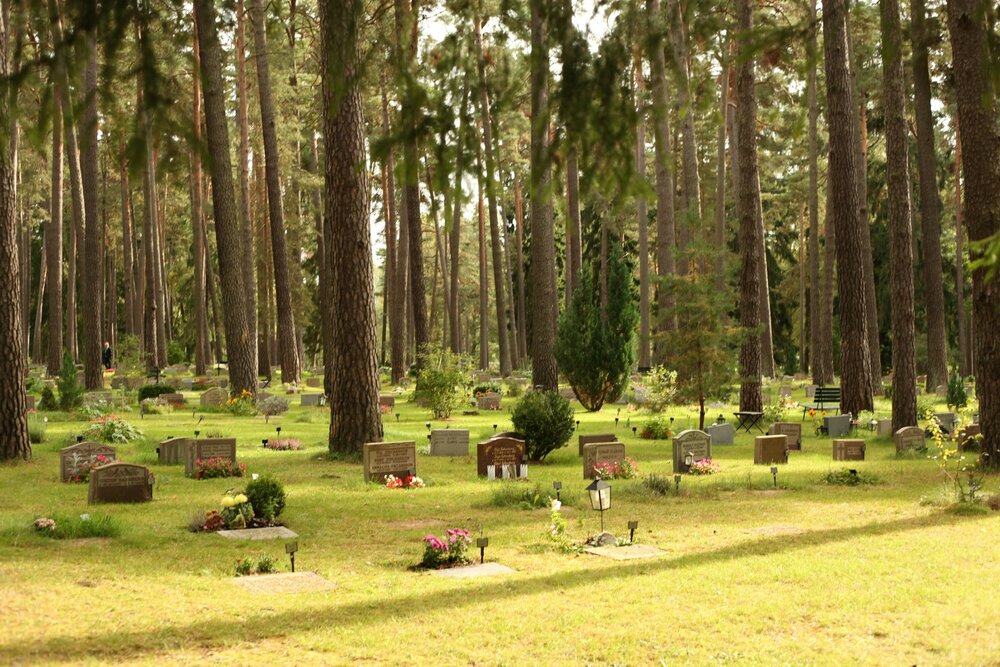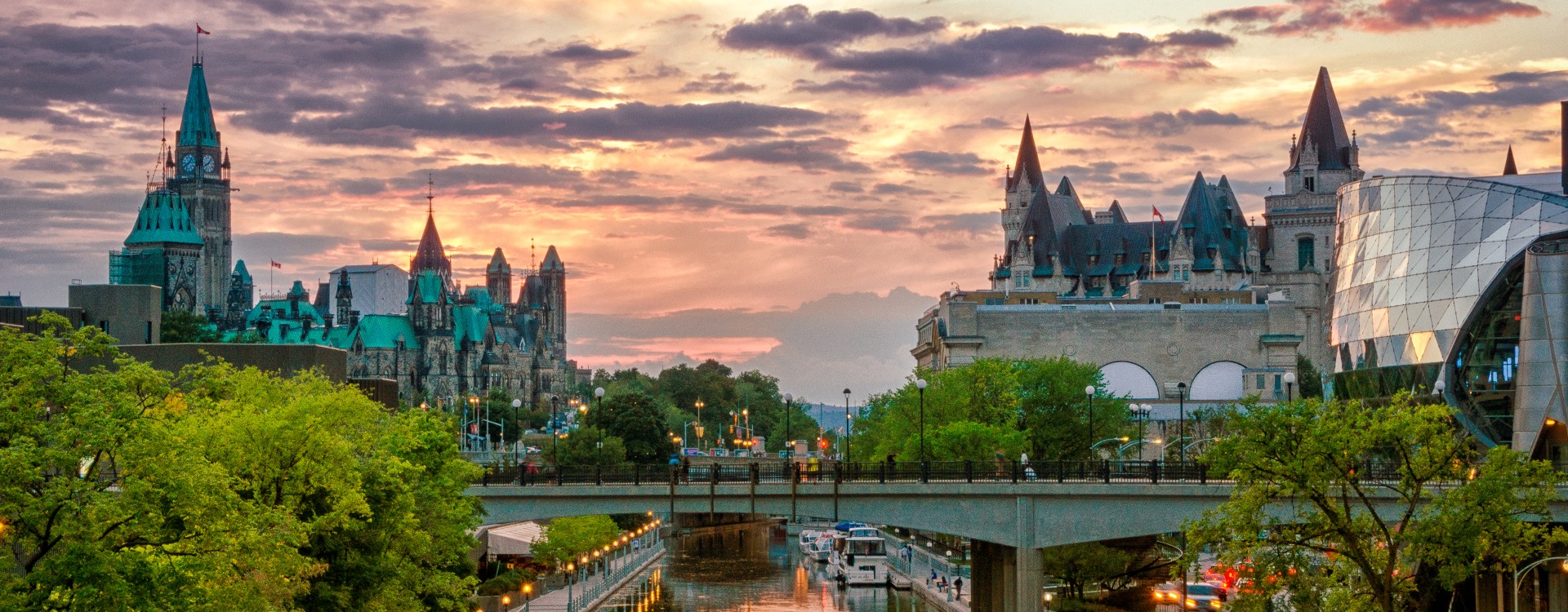Questions to Ask Before Purchasing Cemetery Lots
July 11, 2025

Buying a cemetery lot isn't something most people do often, so it's natural to feel unsure about how to start. Like with any important purchase, asking the right questions can help you avoid surprises and feel more at ease about the choice. It’s not just about picking a spot, it’s about choosing a place you and your family will feel connected to over time.
Whether you're pre-planning or making arrangements after a loss, there are key things to keep in mind. A cemetery lot is a lasting decision, and being informed matters. From fees to layout to care, asking ahead makes a huge difference. Here are some questions to consider before making that choice in Ottawa.
How Much Does The Cemetery Lot Cost?
Price is usually the first thing families ask about, but there's often more to it than just the upfront number. If you’re thinking about cemetery lots for sale in Ottawa, it's important to understand every part of the total cost before making a commitment.
Start with the basics, like:
- What’s the price for the lot itself?
- Are there any extra fees, like for opening and closing the grave?
- Is there a maintenance or care fee added in?
- Are payments flexible or do they require full upfront payment?
Some costs feel straightforward at first, but others get added later and can affect your budget. The cost of the lot may only be one part of the full picture. For example, if you've chosen a section that needs extra prep or a particular type of foundation for a headstone, that will likely add to the total.
It’s also smart to ask about long-term care. Some cemeteries have a fee built in to cover future upkeep, while others offer it separately. That can change how much you're really spending. And because this is Ottawa, it's worth checking if weather-related maintenance like ground shifting or seasonal care is covered, since that can impact upkeep in years to come.
When you're comparing options, think about both short-term costs and what will be needed down the road. A slightly higher upfront fee might offer more peace of mind if it covers better long-term care. It’s okay to ask for a complete breakdown. The more specific the answer, the easier it will be to feel confident in your decision.
What Are The Maintenance And Care Policies?
You're not just choosing a plot. You're picking a place that you or someone you love will visit for years ahead. That means the overall look and condition of the grounds matter more than many people first realize. Ongoing care is part of what helps the space feel respectful, peaceful, and looked after.
When talking to a cemetery, go beyond asking if the lawn gets cut. Some helpful questions include:
- Does the cemetery take care of weeding, trimming, and reseeding?
- How often are the grounds checked or refreshed?
- What happens after bad weather or heavy snow melts?
- Are you allowed to plant flowers or place personal items by the headstone?
One example is a family visiting in the spring, then noticing their loved one’s marker is hard to see because of salt damage or ground settling over the winter. If maintenance doesn’t include correction for that, there could be stress or extra expense to fix it.
It’s also good to ask if there’s a specific team responsible for upkeep or if it’s handled by outside contractors. Some locations have dedicated groundskeepers who monitor changing conditions through the seasons, which can help prevent problems before they develop.
Making sure the site will stay cared for is not only about keeping it presentable, it’s about protecting peace of mind. You want to know that even as the years go by, the lot will stay clean, tidy, and calm for future visits. That kind of reassurance is something families deeply value.
Are There Any Restrictions Or Regulations?
Every cemetery has its own rules about what is allowed on or around a burial lot. These aren’t always obvious when you're walking the grounds, so it’s worth asking upfront. Whether it’s about headstone sizes, decorations, or planting flowers, being clear on regulations can help avoid frustration later.
Some places may limit headstone dimensions or require them to be made from specific materials. Others may have seasonal rules around decorating, like when it’s acceptable to leave wreaths or whether solar lights are allowed. These guidelines are usually in place to help keep the grounds looking consistent, but they can impact what kind of tribute you choose for your loved one.
Before you decide, ask questions like:
- Are there size or shape rules for headstones and markers?
- Is there a list of approved materials for grave markers?
- Can personal items like statues, wind chimes, or lighting be used?
- Are flowers or plantings allowed directly on the lot?
- Is there a schedule for removing temporary items?
For example, a family might place a decorative item at a loved one’s grave only to find it gone a week later. While it can feel upsetting, this usually happens because the item went against cemetery rules. Knowing the policies ahead of time helps you avoid that kind of disappointment and plan something that will last.
Getting clear answers on these rules early on can help you honour your loved ones in a way that fits both the family's wishes and the cemetery’s policies.
What Types Of Burial Options Are Available?
When people hear the term cemetery lot, they often picture a standard burial plot using a casket. But that’s just one of several options. Knowing what’s available can help families make a more personal and meaningful decision.
Here are a few burial choices you may want to ask about:
- Traditional burial plots for caskets
- Columbarium niches that hold cremated remains above ground
- Scattering gardens or manicured urn gardens for urn burial
- Family estate lots for multigenerational or grouped sites
- Memorial walls with plaques for cremation-only spaces
Each of these layouts has a different feel. A traditional casket plot may allow for personalized headstones and more flexibility with flower arrangements. A columbarium can be easier to access during all seasons. An urn garden might give you a peaceful, natural setting with less to maintain. Family estate lots offer even more privacy while allowing multiple loved ones to be placed near each other.
Choosing a burial option isn’t just checking a box. It’s tied to how your family plans to remember and return. It helps shape the experience for years to come. And for those with cultural or religious customs, it’s a good idea to find out whether those practices can be supported by the cemetery.
How Is The Location And Accessibility Of The Cemetery?
For many families, location is a big factor when selecting a cemetery. A place that’s easy to get to makes regular visits more likely and less stressful. In a city like Ottawa, with its mix of urban and suburban areas, the location can impact how families stay connected to their loved ones over time.
If possible, it’s smart to visit the cemetery in person. See if the area feels peaceful. Listen to traffic or construction nearby. Walk the grounds to check how flat or hilly it is. These small things can influence how you and others experience the space.
Here are a few helpful things to ask during your visit:
- Is the cemetery easy to reach for most family members?
- What is parking like on weekends and busy days?
- Are roads and walkways safe and maintained year-round?
- Are benches or shade structures available?
- Is it accessible for people using walkers or wheelchairs?
Think ahead about how your family’s needs might change. Will elderly relatives still find it easy to visit years from now? Will new developments nearby affect the quietness of the space? These may seem minor today but can make a big difference later.
Some families may want to be near religious places or on a public transit route, which can make group visits simpler. Choosing a connected and peaceful location helps create a positive long-term experience for everyone.
Making the Right Choice for Your Family
Every cemetery lot represents more than just physical space. It's part of your family’s story. Asking honest and thoughtful questions is one way to make that story start off right.
Learning about cost, care, rules, types of burial, and location can give peace of mind now and in the years to come. These are details that help your family feel more secure about the choice.
This isn’t a rushed decision. It's one worth taking your time with. Walk the grounds. Talk to staff. Explore different burial layouts. Families who ask early and clearly often feel more confident in the decision they make. And that confidence can carry on for generations.
Choosing the right place for you and your family is a decision that lasts generations. At Highland Park Cemetery, we understand the need for informed choices. If you’re considering your options and want to explore cemetery lots for sale, our team is here to guide you. Start with understanding your needs and how different options can fit them. Let us help make this process easier, so you can focus on what truly matters—honouring and remembering those you love.
Highland Park Cemetery
2037 Mcgee Side Road,
Carp, Ontario K0A 1L0
Telephone: (613) 831-4600
info@highlandparkcemetery.ca


